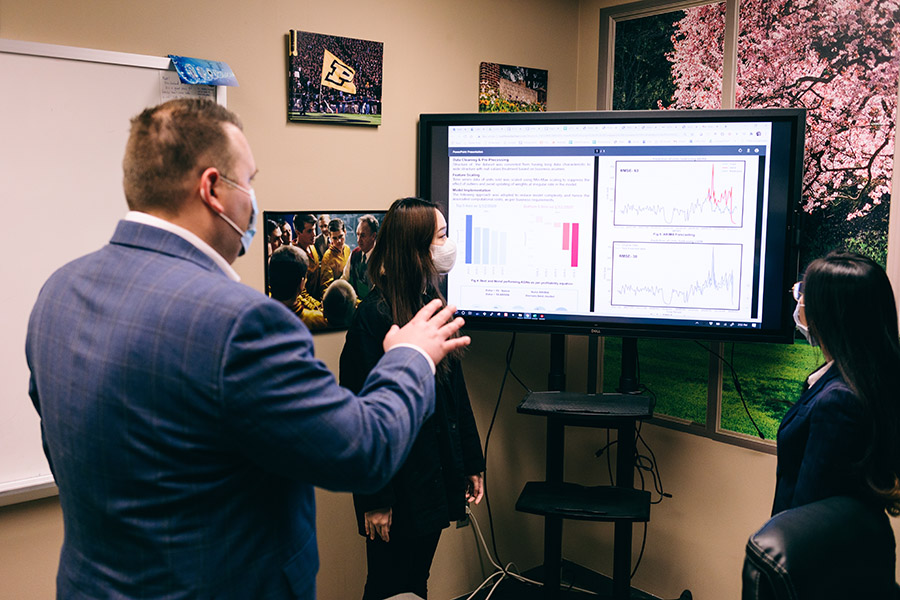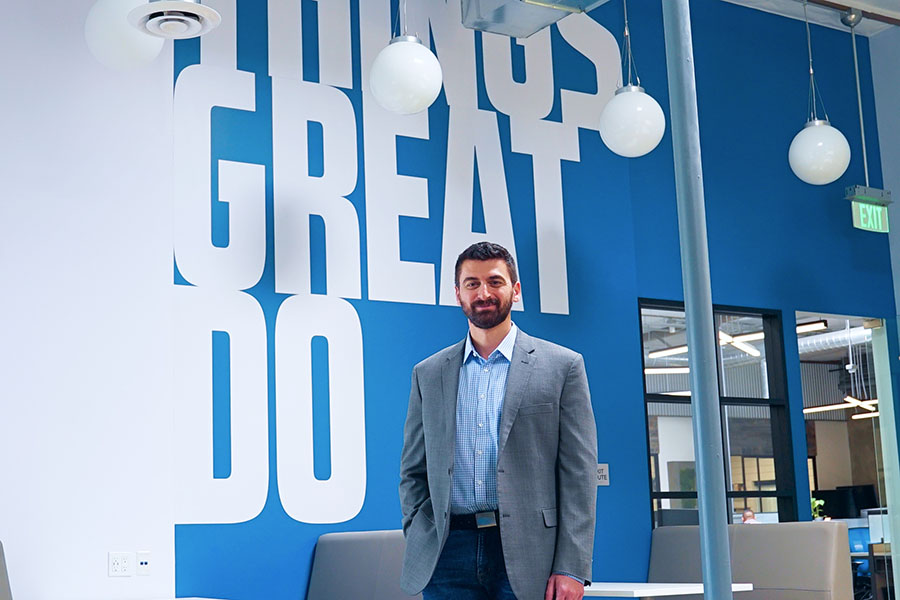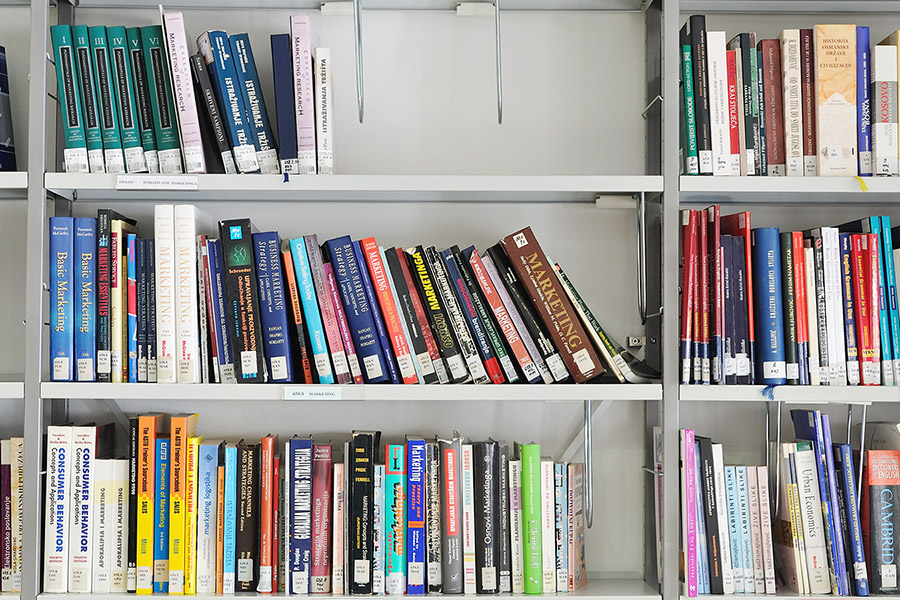
Driven by Data - Experiential learning about real-world, corporate projects
Data is everywhere. It’s how your GPS knows how to guide you to your favorite coffee shop, or how cancer researchers can use data to determine the best individual drug therapy options for patients. Ultimately, data science is helping companies connect the dots between today’s decisions and tomorrow’s strategies.
Purdue University is answering the call for data science expertise with The Data Mine — a fully immersive living and learning community for students, faculty, researchers and corporate partners alike. More than 600 students from a range of colleges and schools, including many from Krannert, collaborate and learn from each other in the persistent pursuit of the next giant leap in data-infused innovation.
Krannert has its own community of students within The Data Mine focusing on data-driven business decisions.
According to professor and faculty advisor Mohammad Rahman, students enrolled in the Krannert School of Management cohort develop their business acumen as well as the ability to make a strong case for actions based on data. Participants learn to analyze business problems and convert them into data science problems, analyze data to identify alternative solutions, and model the value of alternative business decisions and courses of action.
Rahman says corporate partners and industry mentors are current or target employers of Krannert students and provide students with data, coaching and instruction. They also give project management support, as well as work with and recruit students for internships and permanent employment. “This experience really sets our graduates apart from many other students graduating from competing programs,” he says.
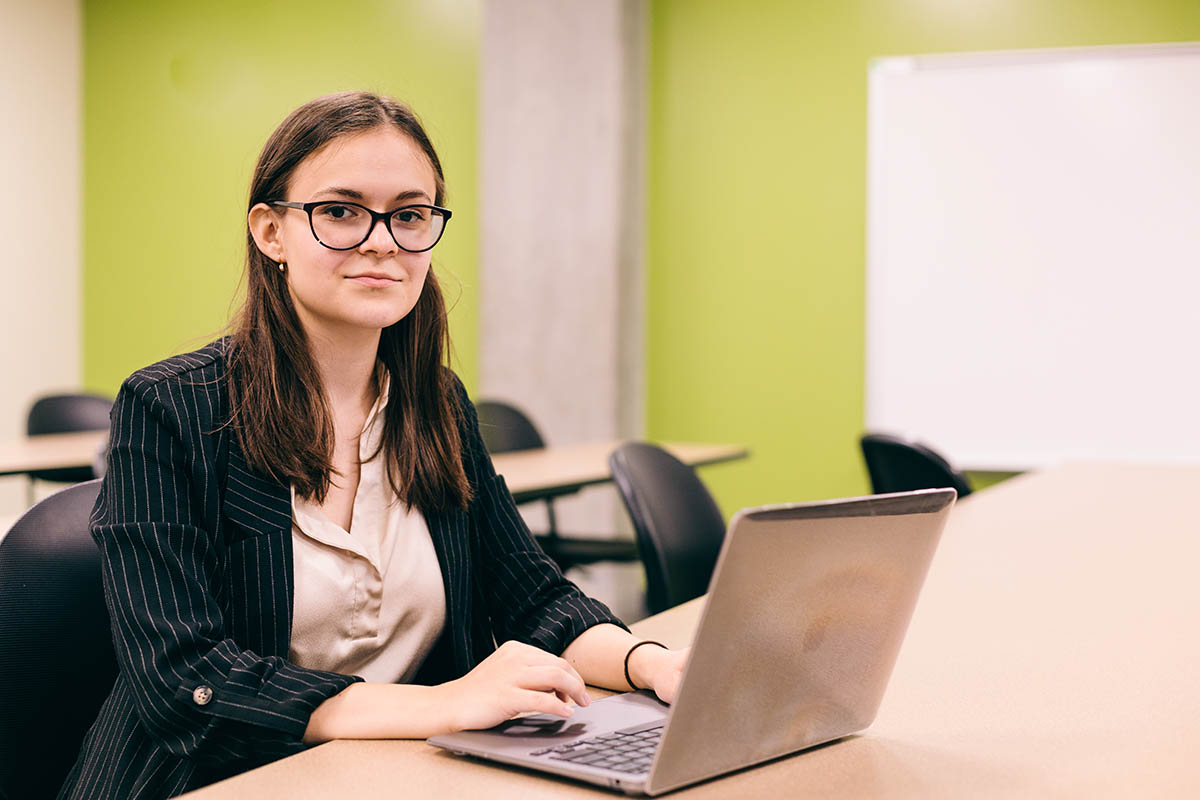
Yana Petrova, a junior majoring in economics and finance with a specialization in data analytics, participated in The Data Mine early in her time at Purdue. In fall 2020, Correlation One selected her from more than 2,000 applicants as a Fellow for the Data Science for All: Women’s Summit.
“I’ve attended interesting lectures and completed labs on different topics from the simple analysis of millions of rows of data to concise data visualizations and powerful web scraping,” she says. “Krannert gave me a strong foundation throughout the experience, and I was able to pick up harder materials in my data science boot camps more quickly.”
Mark Daniel Ward, director of The Data Mine, is enthusiastic about the university-wide program, which immerses students in data science rather than sitting through old-school classroom lectures. The result is a re-envisioned residential learning environment that welcomes students from all majors.
“It’s really the idea of having data science for all,” Ward says. “It’s a way for students to learn about the data sciences while they are learning about their discipline.”
The amount of knowledge people are producing now from their data footprint is on a scale considered unimaginable a few years ago, making data utilization critical for the coming decade. It’s estimated that the number of devices producing raw data will leap from today’s roughly 20 billion to almost a trillion by 2030.
“We’re using data to make predictions, build models and gain new insight beyond our own understanding of an area,” Ward says. “It’s a tool to achieve that ‘ah ha!’ moment when you uncover new insight and learning. Our students take ownership and have that moment of discovery because of the tools they’ve learned here.”
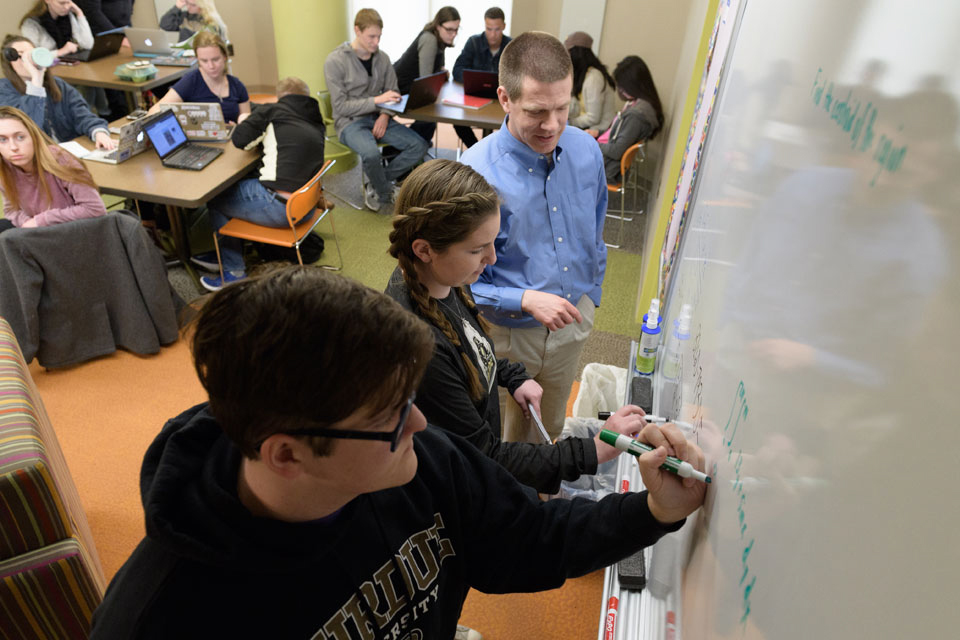
More than 300 undergraduate and graduate students participate in The Data Mine’s Corporate Partners program, which enables them to work directly with employees of companies and national laboratories on data-driven projects.
Maggie Betz, corporate partners senior manager for The Data Mine, says partners range from Ford Motor Co. and Microsoft to all sizes of Midwest industries including Cummins Inc. and Beck’s Hybrids. There are more than 50 partnerships with industry leaders.
“By giving our students a hands-on, project-based experience, we are creating the next generation of data-fluent graduates,” Betz says. “We take on the really large data projects our corporate partners would love to do if they had the time.”
Student projects have included collaborating with Merck on a biometric wearables project and partnering with Sandia National Laboratories to examine how flight patterns changed due to the COVID-19 pandemic.
Among the participants from Krannert on the Merck project is Nicholas Rosenorn, a senior majoring in economics and statistics.
“The biometric wearables project is a full-stack development project working toward the buildout of a mobile application for use during the clinical trial phase of new drugs,” Rosenorn says. “This app will collect cognitive response data and biometric patient data through mobile fitness trackers like Fitbit, Apple, and Garmin watches. Our team’s goal is to establish a clean and consistent data pipeline that allows for immediate collection of physical and emotional data of clinical trial patients.”
Now in its third year, the Merck project has engineered procedures for data acquisition, storage, and visualization, as well as developed an IOS and Android mobile app for immediate client experience feedback. Going into the fall 2021 semester, the team plans to build upon and improve previously built processes while exploring deeper analytical processes, such as activity pattern recognition using machine-learning techniques.
Krannert undergraduate Annie Jancaric, a junior majoring in finance, served as team leader for the Sandia National Laboratories Flight Team sub-project focused on COVID.
“The flight team uses a data visualization tool called Tracktable, which takes data points from private and commercial flights around the world and creates what we call trajectories,” Jancaric says. “These trajectories help us in analyzing millions of flight paths and assist us in solving our research questions.
“The goal was to explore how COVID has affected flights so that the industry might be better prepared for a similar situation in the future. The results we found were informative and interesting, making it possible for the students to advance their skills in data science and expose them to a workplace type of team, all while accomplishing undergraduate research for a major U.S.-based company.”
One of the projects that students from The Data Mine and Cummins collaborated on had direct impact in the community — the Leaper X program in partnership with CityBus of Greater Lafayette. Students were able to evaluate opportunities for efficiencies and influence route setting on Purdue’s West Lafayette campus
Sabrina Dopp, a general management major at Krannert with a concentration in data analytics and a minor in statistics, was among the students who worked on the project with Cummins.
At the outset, Dopp and her fellow students felt anxious about approaching the Cummins team. Over the semester, however, they were able to develop strong connections. “This past semester we’ve been meeting them once a month, and they always spend the first five or 10 minutes of the meeting chatting and catching up,” she says. “They’re kind of like a family.”
For Dopp, the experience was transformational.
“All the knowledge I’ve gained from this has entirely changed my career path,” she says. “I went in not knowing what I wanted to do, and then somewhere along the way I found management and business. But The Data Mine specifically has influenced, ‘I can learn these technical skills. I can do this. I have the ability to learn anything’.”
Ultimately, employers like Cummins that partner with The Data Mine hope that Dopp — and others like her — will choose to launch their careers here in Indiana.
“In every area of the workforce, the need is imperative for our students to bring their expertise,” Ward says. “Because of the unique experience they have in The Data Mine, our students are ready to make a tremendous impact in the workforce as soon as they graduate from Purdue.”
A $1.5 million grant from the National Science Foundation beginning in 2014 initiated Purdue’s dedicated effort to delve into data science research. The program that emerged as The Data Mine began in 2018-19 with around 100 students as part of Purdue’s Integrative Data Science Initiative.
Now, Purdue is data-infused, with plans underway to expand student enrollment in The Data Mine in the near future and to prepare more students for future jobs that rely on data science skills.
“You really can find the data sciences in every field,” Betz says. “You can take your skills in data and put them to work almost anywhere.”

